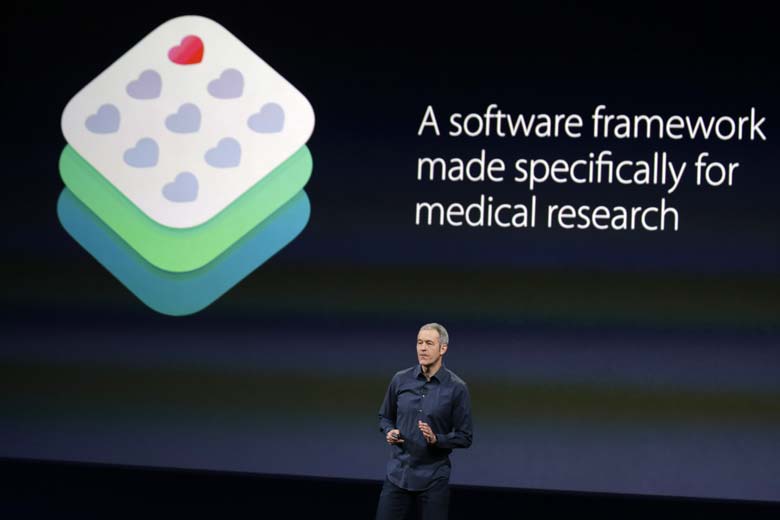Not a long ago, there were reports about Google’s Knowledge Graph getting updated with a new feature helpful for health conscious people. Google had collaborated with Mayo Clinic to add curated health information and illustrations on search panel. And now another tech giant, Apple has released medical research applications. This toolkit would allow medical researchers to peek in the Apple customer base to recruit and enroll study participants, monitor and collect data related to their health issues as part of the research.
Apple on Monday (9th March), released five applications which were built by Apple along with some university researchers. This toolkit would use the inbuilt sensors from the iPhones and wearable devices to collect real time data and share it with the teams across universities. Apple is also working on another similar project concerning data sharing and applications providing ease over collaborative efforts. Apple said that it would release the open-access software module for the same by next month for other researchers to work upon them. The toolkit would be available for researchers studying asthma, Parkinson’s disease, diabetes, cardiovascular ailments and breast cancer.

The research carried through these new applications will allow the researchers to track the health related information from the participants on a daily basis. According to experts, this would help them in detecting patterns in dependence of the day to day functioning of the test subjects. The data collected will improve upon the fact that many survey questions will be added to form any conclusions like approximate time dedicated to workouts, eating habits, etc.
Although this move is considered useful to the iPhone users and masses in general, several experts still are skeptical about the applications being appropriate enough to carry out such rigorous trials. Also experts are not sure about the credibility of data filled in by the users.
The users selected as test subjects are likely to give an ‘informed consent’ along with the private data and are also bound to report any adverse events. This would possibly come under the scenario that the user might never meet his study investigators.
Like every other project concerning with critical data, this project too is bound to see some complications. And with smartphones getting more sensors integrated in them and the wearable gadgets getting attention like never before, Apple’s initiative is bound to achieve good standards. And overall, such initiatives by tech giants can only portend about more helpful technology for the users.
